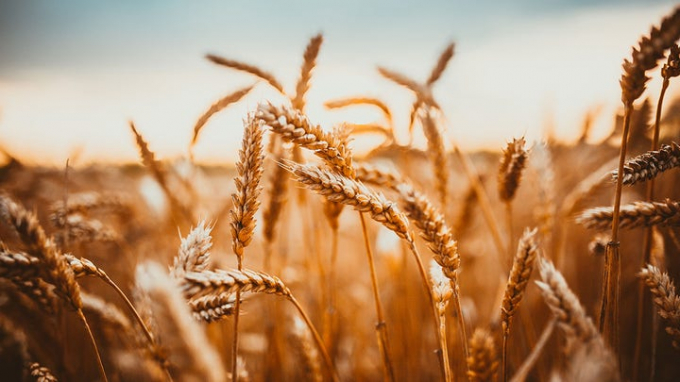June 15, 2025 | 01:57 GMT +7
June 15, 2025 | 01:57 GMT +7
Hotline: 0913.378.918
June 15, 2025 | 01:57 GMT +7
Hotline: 0913.378.918

About a quarter of the world's grain and about a fifth of the world's corn comes from the breadbasket of the world. Photo: iStock
Russia's invasion of Ukraine will more than likely have ripple effects across Europe and the rest of the world. One of the more immediate impacts of the conflict will be a reduction in the supply of wheat and corn.
About a quarter of the world's wheat trade and a fifth of the world's corn comes from the region, Bloomberg reports. Since Russia invaded Ukraine, both countries have had to close ports used for exporting goods. It's unknown when either side will be able to reopen these ports again.
On Friday, World Trade Organization Director-General Ngozi Okonjo-Iweala explained that the situation will have a significant impact on the price of bread and other wheat products for regular people.
Countries that buy wheat and corn from Ukraine and Russia will now have to look elsewhere, putting more strain on international suppliers.
One expert that spoke with Bloomberg explained that the situation will be putting more pressure on areas of the world where supplies are already lower than normal.
Fox Business previously reported that due to the wheat shortage, beer is likely to see a price increase over the coming months.
Barley, one of the key ingredients in making beer, is heavily produced in Ukraine. The region is often called the "breadbasket of Europe" due to the high amount of grain grown in the area.
It's unclear what impact this will have on the price of beer, however. Major brewers, like Molson Coors, have reportedly been able to absorb the higher costs while keeping the price the same for consumers.
Beer prices may increase
A significant percentage of barley used for beer comes from Ukraine.
Prices for many products have been rising over the past year, but one product in particular may see a sharp increase due to recent events. While Russia's invasion of Ukraine has caused many people to boycott Russian vodka, the conflict may also have an impact on beer drinkers as well.
Barley, one of the key ingredients in making beer, is heavily produced in Ukraine, WISN reports. The region is often called the "breadbasket of Europe" due to the high amount of grain grown in the area.
Jim McGreevy, president and CEO of The Beer Institute, spoke with news outlets about the situation.
"Ukraine accounts for about 20% of beer’s usage of barley," he said. "It’s one of the top five global producers of barley, so brewers, particularly at a global level, will be watching the supply and price of barley."
It's unclear what impact this will have on the price of beer, however. Major brewers, like Molson Coors, have reportedly been able to absorb the higher costs while keeping the price the same for consumers.
Some smaller brewers, however, have had to make adjustments.
Paul Johnson, bartender at St. Paul Fish Company in Wisconsin, spoke with WISN about how the rise in the cost of goods may impact prices at the bar.
"Like maybe 50 cents a glass on beer. Maybe a dollar on call drinks and stuff like that. But nothing too crazy," he explained.
(Fox Bussiness)

(VAN) Extensive licensing requirements raise concerns about intellectual property theft.

(VAN) As of Friday, a salmonella outbreak linked to a California egg producer had sickened at least 79 people. Of the infected people, 21 hospitalizations were reported, U.S. health officials said.

(VAN) With the war ongoing, many Ukrainian farmers and rural farming families face limited access to their land due to mines and lack the financial resources to purchase needed agricultural inputs.

(VAN) Vikas Rambal has quietly built a $5 billion business empire in manufacturing, property and solar, and catapulted onto the Rich List.

(VAN) Available cropland now at less than five percent, according to latest geospatial assessment from FAO and UNOSAT.

(VAN) Alt Carbon has raised $12 million in a seed round as it plans to scale its carbon dioxide removal work in the South Asian nation.

(VAN) Attempts to bring down the price of the Japanese staple have had little effect amid a cost-of-living crisis.